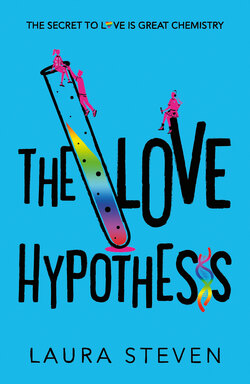Читать книгу The Love Hypothesis - Laura Steven - Страница 6
ОглавлениеAllow me to explain the plethora of ways in which my love life is screwed. You know, scientifically.
According to the Matching Hypothesis, two people are more likely to form a successful relationship if they’re equally desirable. This desirability can come in the form of wealth or fame, but it’s usually determined by physical attractiveness. Which is to say: most folks fall in love – and stay in love – with other folks on the same level of hotness.
Back in the sixties, social scientists held a Computer Match Dance which, despite its cool name, was nowhere near as fun and futurey as it sounds. Basically, four judges rated a bunch of participants according to their hotness, and these participants were randomly paired up for the dance (except no man was paired with a taller woman, because god forbid their masculinity be challenged in any way!). During an intermission, participants were asked to assess their date, and the results showed that partners with similar levels of hotness expressed the most liking for each other. Shocker, I know.
The sixties may as well be Tudor England, but unfortunately this theory holds true in the internet dating age. One recent study measured the hotness of sixty men and sixty women, and their interactions were monitored. While people at least attempted to contact others who were significantly hotter than they were (probably because the variable of face-to-face rejection had been eliminated, as is the appeal of all online dating), it was ultimately found that the person was way more likely to reply if they were closer to the same level of hotness.
No, you haven’t stumbled upon a social psychology journal by accident, like I did one heady night while researching Walster and Walster over a glass of 2003 Merlot.
All I’m saying is that if the Matching Hypothesis is anything to go by?
Yikes.
